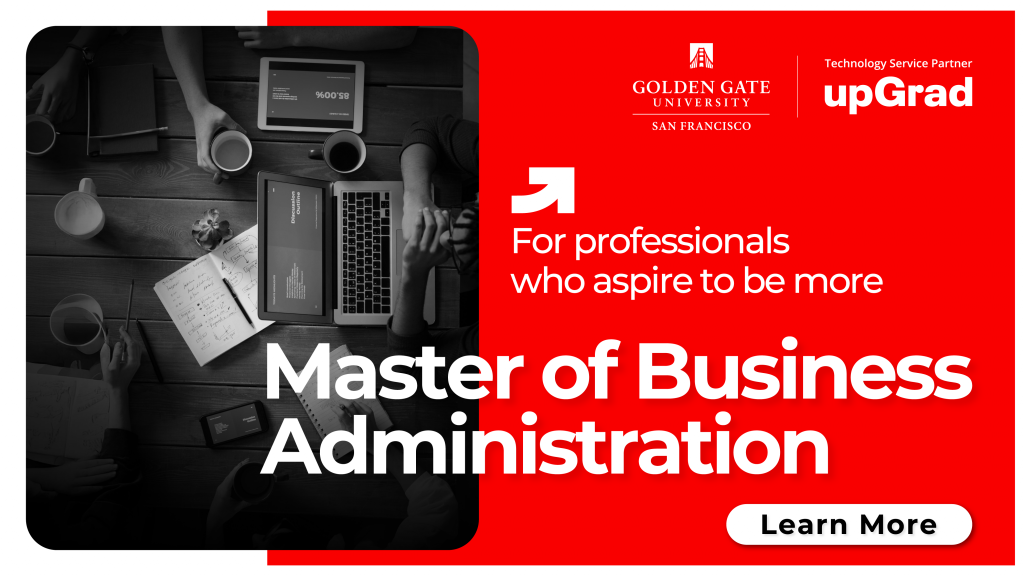Aspiring Human Resources specialists in Canada are increasingly pursuing valuable certifications to enhance their employment prospects. Some of the prominent benefits of HR certifications include skill development, access to professional networking, and improved know-how. Moreover, these certifications can also be obtained by working HR professionals seeking to accelerate their career growth.
How to become a Human Resource Specialist? This blog tells you how!
We’ll walk you through a step-by-step guide to starting your career as a Human Resource Specialist in Canada, top HR Certification programs, duration, and more.
Take your skills to the next level — Explore Online MBA Courses
Steps to Start Your Career as a Human Resource Specialist
Ready to build your career as an HR specialist? Start on the right note by taking the steps below:
Understand the Value of an HR Certification
An HR certificate demonstrates your ability to work as an HR professional. While freshers enroll in these certification programs to enter the workforce, working professionals choose them to advance their careers.
With so many choices available today, it can be challenging for you to determine the actual value of a certification. What may work for others may not work for you. Here are a few things to remember:
- Ensure you thoroughly review the course content to determine if it aligns with your specific career goals. If it doesn’t, it hardly holds any value for you.
- Check for the skills taught. HR Management, HR Dashboarding, Employee Retention, Performance Management, HR People Analytics, and Talent Acquisition are top skills that can make your resume stand out.
- Who are the mentors? A highly credentialed faculty can add unparalleled value to your learning experience.
Choose the Right Certification Body
How to become HR certified? By choosing the right certification body. Here are a few factors to keep in view:
- Select a certification program offered by a reputed college/institution.
- Check the accreditation of the program (whether it’s recognized by employers or not).
- Check for future employability prospects upon obtaining the certification.
Check Eligibility Requirements
Are you eligible for the course? This should be one of the first things to check out when researching HR certification courses. Additionally, eligibility requirements may vary depending on the program and college.
Here is a look at the requirements commonly asked for:
- A Bachelor’s degree (most colleges ask for it)
- Relevant work experience (required in some cases)
- A Master’s degree (may be asked in some cases)
Prepare for the Certification Exam
You have completed researching the HR certification courses and selected the one that best suits your needs. Now what?
It’s time to learn and earn the certificate. Here are a few ways to maximize your learning experience and complete your certification with flying colors:
- Never miss the doubt resolution sessions.
- Be a part of the online communities consisting of your batchmates and faculty.
- Keep preparing case studies beyond your coursework to hone your skills.
Keep Upskilling
Once you complete a program and become a certified HR professional in Canada, keep signing up for further certification courses to facilitate:
- Mid-career growth
- Upskilling
- Wider networking opportunities
Also Read: Highest Paying HR Jobs in Canada
Top HR Certifications Recognized in Canada
The following are the primary HR certifications in Canada:
- Chartered Professional in Human Resources (CPHR)
- Certified Human Resources Professional
- Certified Human Resources Leader
- Certified Human Resources Executive
Various entities issue these certifications, catering to different student groups. For example, the CPHR certification is issued by CPHR Canada. It is a national standard for HR professionals at every level. It is accepted in all Canadian territories and provinces except Ontario.
International HR Certifications Recognized in Canada
- Society for Human Resources Management (SHRM) Senior Certified Professional and SHRM Certified Professional
- Senior Professional in Human Resources and Professional in Human Resources
- Global Professional in Human Resources
- Certified Compensation Professional
- Specialized Certificates from the Chartered Institute of Personnel and Development and the Academy to Innovate HR
Province-wise Certification Requirements
In Canada, all provinces and territories except Ontario operate under the CPHR Canada umbrella, which uses the CPHR designation. Ontario has separate and legally recognized designations recognized by the Human Resources Professionals Association.
- In Canada, you must complete the required coursework comprising nine courses or take other recognized routes to achieve the certification.
- You must also pass the relevant exams, like the Knowledge Exams (KEs) of both CHRP and CHRL, or the Employment Law Exam.
- You need relevant professional experience, like 8 years for CHRE and 3 years for CHRL. For CPHR, you must be a member of a provincial association, such as CPHR Alberta, CPHR British Columbia, or CPHR Yukon.
HR Professional Salary and Career Growth
HR professionals in Canada work in various roles at different stages of their careers, such as the following:
Entry-Level
- HR Assistant
- HR Coordinator
- Benefits Administrator
Mid-Level or Generalist
- HR Generalist
- HR Specialist
- Junior (Jr.) HR Business Partner
Senior/Management
- HR Manager
- Senior HR Business Partner
- Senior Recruiter
Executive-Level
- HR Director
- Vice President (VP) of HR
- Chief HR Officer
The following table shows the general salaries for HR professionals in Canada at different stages of their careers:
| Career Stage | Annual Salary Range |
| 1-3 years | CAD 52,000 – CAD 79,000 |
| 4-6 years | CAD 53,000 – CAD 83,000 |
| 7-9 years | CAD 61,000 – CAD 91,000 |
| 10-14 years | CAD 68,000 – CAD 103,000 |
| 15+ years | CAD 72,000 – CAD 117,000 |
Sources: Glassdoor, as of November 20, 2025
Skills Required to Become an HR Professional in Canada
You need the following skills to become an HR professional in Canada:
- Core HR Competencies
- Knowledge of Canadian Employment Law
- Talent Management and Acquisition
- Workplace Conflict Resolution and Relations
- Business Acumen and Strategic Thinking
- Essential Soft Skills
- Interpersonal Skills and Communication
- Emotional Intelligence and Empathy
- Integrity and Ethics
- Critical Analysis and Problem-Solving
- Tools and Technical Skills
- HR Information Systems
- Data Literacy
All these skills can help you in different ways. For example, knowing Canadian employment laws means you know the nuances of the following:
- Employment Standards Act
- Human Rights Legislation
- Occupational Safety and Health Regulations
- Personal Information Protection and Electronic Documents Act
HR Job Market and Demand in Canada
The HR job market is strong and has a persistent demand for skilled professionals for various reasons.
HR now plays a central role in business success, shaping organizational culture, ensuring legal compliance, and driving employee experience initiatives.
Despite immigration, many Canadian recruiters find it difficult to find qualified professionals. This is where strategic talent retention and acquisition skills have become so important.
The demand for skilled HR professionals is exceptionally high across industries such as education, insurance, financial services, and healthcare.
The most important provinces and cities for HR in Canada are:
- Toronto, Ontario
- Vancouver, British Columbia
- Calgary, Alberta
- Montreal, Quebec
- Ottawa
They have a high concentration of HR opportunities due to their growing, diverse economies.
Also Read: HR Career Paths: From Generalist to Specialist Roles
🎓 Explore Our Top-Rated Courses in Canada
Take the next step in your career with industry-relevant online courses designed for working professionals in Canada.
FAQs on How to Become a Certified HR Professional in Canada
Q: What is the best HR certification in Canada?
Ans: Regardless of whether you want to make your entry into the workforce or accelerate your career growth, you must explore IIM, Kozhikode’s Professional Certificate Programme in HR Management and Analytics for its:
- Top-notch accreditation
- Unmatched coursework
- Focus on in-demand skills like HR Management, HR Dashboarding, HR People Analytics, and others.
Q: Is CPHR mandatory to work in HR in Canada?
Ans: No, a CPHR or Chartered Professional in Human Resources designation is not really mandatory to work in Human Resources in Canada. However, you should consider it for a competitive edge, improved skills (especially Canadian HR laws), and overall better career opportunities.
Q: What is the difference between CPHR and CHRP?
Ans: CHRP (Certified Human Resources Professional) has been renamed CPHR or Chartered Professional in Human Resources. While Ontario still maintains the CHRP designation, the rest of Canada has shifted to CPHR.
Q: Do I need a degree to get HR certified?
Ans: While a degree is not mandatory for HR certification, some institutions or colleges may require it, while others may require a combination of a degree and work experience.
Q: What is the cost of an HR certification in Canada?
Ans: The average cost of HR certification in Canada varies depending on the colleges or institutions offering it. The Professional Certificate Programme in HR Management and Analytics from IIM, Kozhikode, costs CAD 3,262.












.png)








